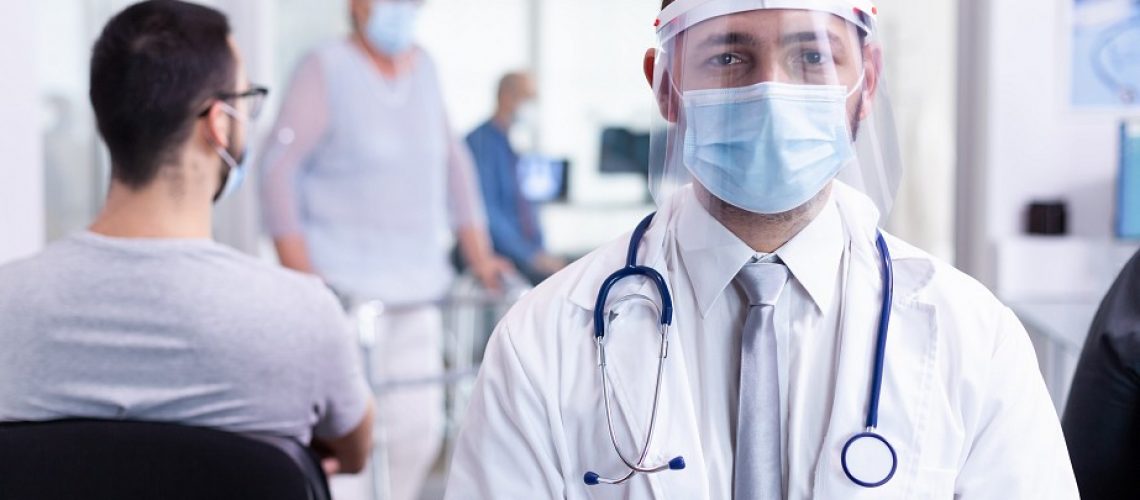There are false negatives; there are false positives; there are untested individuals with disease.
I am in the process of developing a 90-minute COVID-19 webinar for ICDUniversity in December to outline new codes and updates, and my inbox is replete every day with articles about the coronavirus.
On Sunday, I took a walk with my husband and had to grab a surgical mask from his stash in his car, because all my handsewn masks were in the wash. I had to take it off after a short while, because it smelled so vile that it literally made me want to vomit. He donned it and assured me that that was what those masks always smell like.
The Cleveland Clinic no longer allows providers to wear homemade or store-bought masks; they are mandated to wear surgical masks, although an email from them just this morning encouraged the general population to wear a cloth mask or face covering when out. Thank goodness I no longer practice clinically!
How this relates to the topic at hand is that a study came out recently, produced by 13 academic medical centers in 12 states, noting that 6 percent of 3,248 participants had SARS-CoV-2 antibodies even though they had not been aware of contracting COVID-19. The findings also showed that:
- Healthcare providers (HCPs) who reported always wearing face coverings when interacting with patients had lower seroprevalence than those who did not; and
- HCPs who reported a shortage of personal protective equipment (PPE) at their medical centers were more likely to have detectable antibodies than those who had ample supplies.
Forty-four percent of the approximately 195 members of the serology-positive group “did not believe that they had previously had COVID-19.” I wondered, were some of these false positive antibody tests? This reminded me of other instances of false positives in the news, such as with professional sports teams and at colleges. I’m quite attuned to this ever since my father’s false=positive PCR testing debacle.
This led me to research false positives in PCR testing, and I found an article in The Lancet noting that false-positive COVID-19 tests in the United Kingdom are becoming increasingly likely, with substantial consequences at the personal, health system, and societal levels. It makes sense – more testing, even with a low false-positive rate, will lead to more false positives by the law of numbers.
One of the references from The Lancet article was another article centering on the false discovery rate, which is the proportion of positive test results that are false positive, and its relationship to prevalence, which is the percentage of population currently infected. If the positivity rate is low, even a small false-positive rate can produce a large false discovery rate.
I am really hesitant to sound too loud an alarm about false positives. I would rather have people take a false positive test seriously than have a person with asymptomatic COVID-19 spreading it around because they blew off a positive test as being incorrect. I am afraid, however, that the statistics about COVID-19 are somewhat inaccurate. There are false negatives; there are false positives; there are untested individuals with disease.
The death rate may be inaccurate, but over 230,000 people have died in the U.S. For every person who dies, 19 more have required hospitalization. Many of those will have permanent or long-lasting heart, lung, or neurological damage, including strokes. It is important to remember that COVID-19 isn’t a binary “dead” or “fully recovered” situation.
The studies are incontrovertible in that wearing face coverings save lives. If 95 percent of us wore masks, the total number of deaths would drop by almost half. Vaccines aren’t immediately forthcoming, and adoption of vaccination is likely to be feeble. A large World Health Organization (WHO) study just came out suggesting that remdesivir, one of the drugs which President Trump received when he had COVID-19, does not reduce mortality.
Thanksgiving and Christmas are coming. It is going to be a long, hard winter. Listen to the science, Tony Fauci, and me: practice handwashing, crowd avoidance, physical distancing, and wearing a mask over your nose and mouth. Stay safe.
——————————————————
Photo courtesy of: ICD10 Monitor
Originally Published On: ICD10 Monitor
Follow Medical Coding Pro on Twitter: www.Twitter.com/CodingPro1
Like Us On Facebook: www.Facebook.com/MedicalCodingPro







